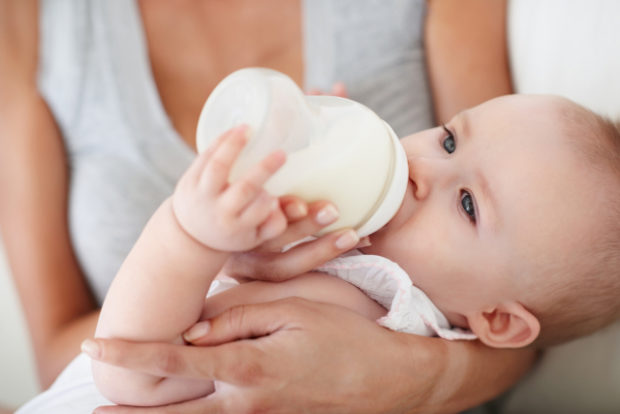Hypoallergenic baby formulas might not reduce allergy risks in infants — study
A study found that the effectiveness of hypoallergenic milk formulas, often prescribed to newborns who are particularly vulnerable to developing allergies, is yet to be proven.
The study by the French Institut National de la Recherche Agronomique (National Institute of Agricultural Research) and the Institut National de la Santé et de la Recherche Médicale (National Institute of Health and Medical Research), published in the journal Pediatric Allergy and Immunology, drew upon data from the nation-wide epidemiology study, the first in France to study children from birth to adulthood.

Image: Istock.com/kupicoo via AFP Relaxnews
Hypoallergenic formula is commonly recommended on a prophylactic basis to newborns with at least one parent or sibling with a history of allergies. These products are based on cow milk and hydrolyzed into small parts to counter the potentially allergenic effects of dairy.
The researchers noted that very little data is available on the influence of these formulas on the prevention of allergies in practical conditions, and pediatric associations in some countries have recently withdrawn their recommendations with regards to the formulas.
Higher risk of wheezing and food allergies in half of the children studied
To determine in what measure the formulas are able to protect an infant, the teams of scientists studied 15,000 children from the over the course of two years following their birth, to investigate possible links with the most common allergic afflictions such as eczema, wheezing, asthma, and food allergies.
According to the researchers, these products did not demonstrate a greater efficacy in the reduction of allergies in comparison to the traditional formula. In fact, the use of hypoallergenic formula in two-month-old children showing no signs of allergies at the time was associated, in the following years, with a higher risk of wheezing and food allergies.
The study’s authors underscore the need for further research. These efforts should be supported by a new European regulation, to come into effect in 2021, which will require manufacturers to carry out clinical studies before being allowed to promote the allergy prevention effects of their products. RGA/JB
RELATED STORIES:
Exercising on treadmill may diminish menstrual pain, says study
Genes, yes, but obesity pandemic mostly down to diet — study